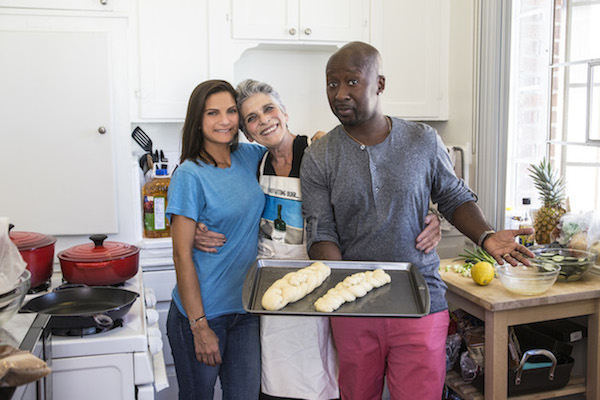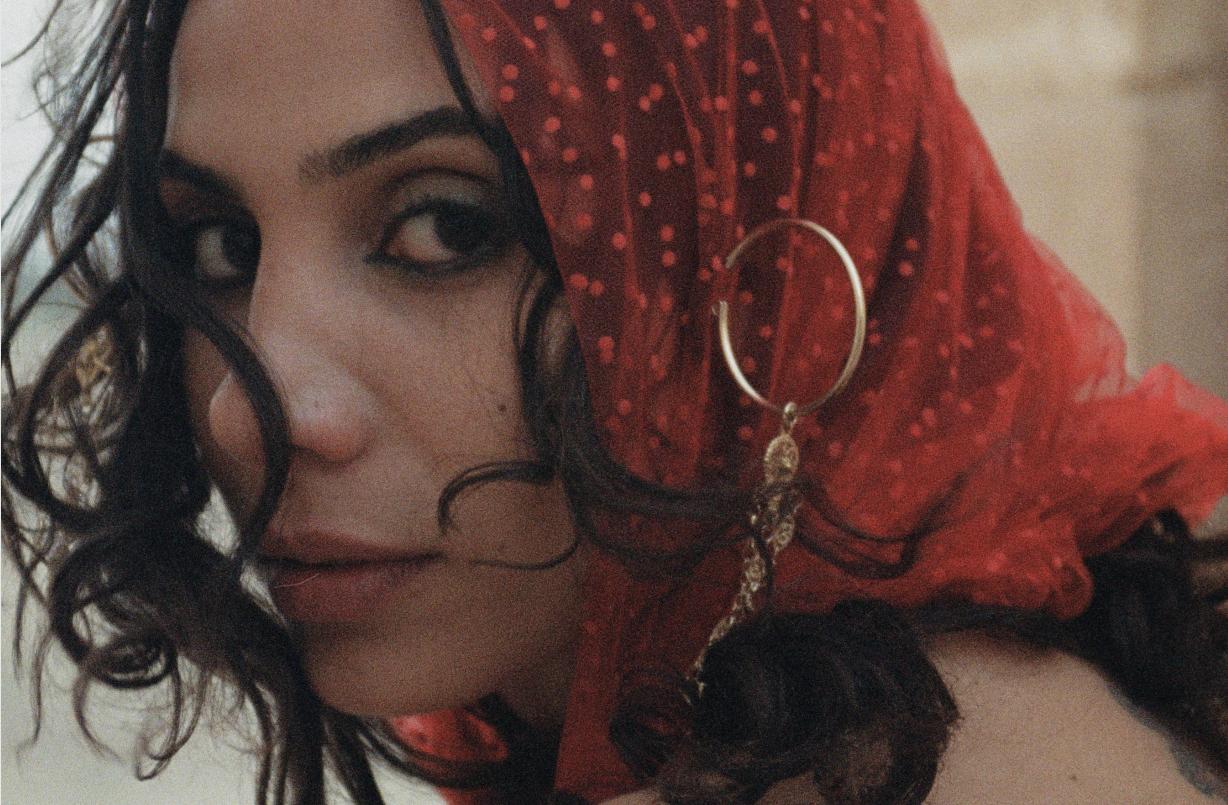I am black, and I am Jewish.
I’ve always found comfort in the and of my identity — that simple part of speech that joins together two disparate things: two families, two histories, two cultures, two heritages, two skin colors, two lineages of trauma, two pathways to North America. As the offspring of both, I am equally neither.
Lately, I spend a lot of time within the proverbial “walls” of the organized Jewish community. As a Jewish professional, my day-to-day life is dedicated to synagogue operations — specifically, membership and communications. While in many ways I am “at home” in the Jewish community, to this day I still feel out of place within the communal mainstream. And, contradictory as it may seem, it is the fact that I can easily pass for the Ashkenazi majority that leaves me feeling this way.
I should say: I never asked to pass. The fact that I can walk into Jewish settings and instantly fit in leaves me with a bad taste. At the same time, I remember recognizing my own thoughts when I read Katya Gibel Azoulay quote her son in her seminal book, Black, Jewish, and Interracial: It’s Not the Color of Your Skin, but the Race of Your Kin, and Other Myths of Identity: “I’m not going to put up a sign that says I’m black just to be accepted,” she relays, writing, “as far as he was concerned, the idea of ‘learning how to act Black’ was the theater of the absurd.”
My blackness — the history and culture that it brings — has formed me into who I am just as much as my Jewishness has. Yet throughout my life, I have often been asked to prove that I belong in black spheres that I have entered. I have been asked to recuse myself to allow the voices of those more phenotypically black to come forward. As a result, I have often avoided these spaces. Proving your legitimacy is exhausting.
If you look at family pictures, you can see my father’s family in me. But most people never look beyond skin tone — “You look exactly like your mother,” they say, contrary to the photographic evidence that suggests otherwise. I grew up to taunts: that my father wasn’t really biologically mine, that I wasn’t really black, that I didn’t understand what “being black” even meant. Despite this, I carry both sides of my family with me, always. The positives and the negatives. Klezmer and Calypso. Gefilte fish and black-eyed peas with ham hocks. The Holocaust and slavery. Anti-Semitism and contemporary racism. Jewish trauma. Black trauma. Together, they form the patchwork of my reality.
When the Rachel Dolezal story broke, it stung. Here was a white woman, posing as black, taking leadership positions in the black community, teaching African-American studies. I felt betrayed and lied to. But more than anything, I felt a pang of jealousy. This woman — a racially white woman — had been accepted into black spheres as a black woman. And here I am, biracial, still struggling to have my voice heard as the product of both parts of my identity. My black relatives have been at the forefront of the fight for civil rights in America for decades. Anti-racism was dinner table conversation when I was growing up. I am the daughter of Eric Garner’s Staten Island as equally as I am the granddaughter of Toronto’s Christie Pits riot. Black history is my story; I feel it viscerally. Yet in many ways I still find myself outside of the black community.
To me, Rachel Dolezal’s self-identification as black flies in the face of a real critical understanding of blackness, and of the privilege of passing. Even as someone who is, by the old census categories, black — if I’ve got the family lineage correct, I am pretty sure I would be a quadroon — I always felt discomfort at say, applying for scholarships geared at people of African descent. My light skin gave me the privilege of not facing the systemic racism I knew these scholarships existed to address. Light skin comes with its complications: as young as high school, I remember asking what it meant to identify as black when I presented as white. The line has always been blurry to me.
I’ve heard people say that Rachel Dolezal “lived as black.” I have to ask: what does that mean? I imagine, facetiously, dashikis and natural locks. Thick chains and gold grills. Lowrider cars with bumping beats. Members of the Nation of Islam in their tailored suits handing out materials on street corners. But the truth is, to me, blackness has so many expressions of culture and lifestyle. Barack Obama; Cornell West; Shaquille O’Neal; Dizzy Gillespie; Marcus Garvey; Frantz Fanon; Beyonce… the more black identities I think of, the less sense I have of what living as black means.
Blackness isn’t a lifestyle. It’s a race — a socially constructed category used to identify people with a common ancestry on the African continent to create a meaningful signifier for a giant diaspora. It’s a category that bears the marks of oppression and trauma — past and present. It seems, though, that the level to which this episode has taken on the proportion of a full-blown scandal belies the American obsession with race, with passing, and with reifying the line between black and white.
I read a great article, largely tongue-in-cheek, about the things that Rachel Dolezal has ruined for the rest of us — that is, for biracial individuals who are light skinned and can pass as white. I read it, and I nodded in agreement. There’s nothing lost by being an ally, I thought. But there’s a lot lost by claiming a history, and an experience, which isn’t your own.
For those of us who occupy the space of the and, things may have just become a whole lot more complicated.







